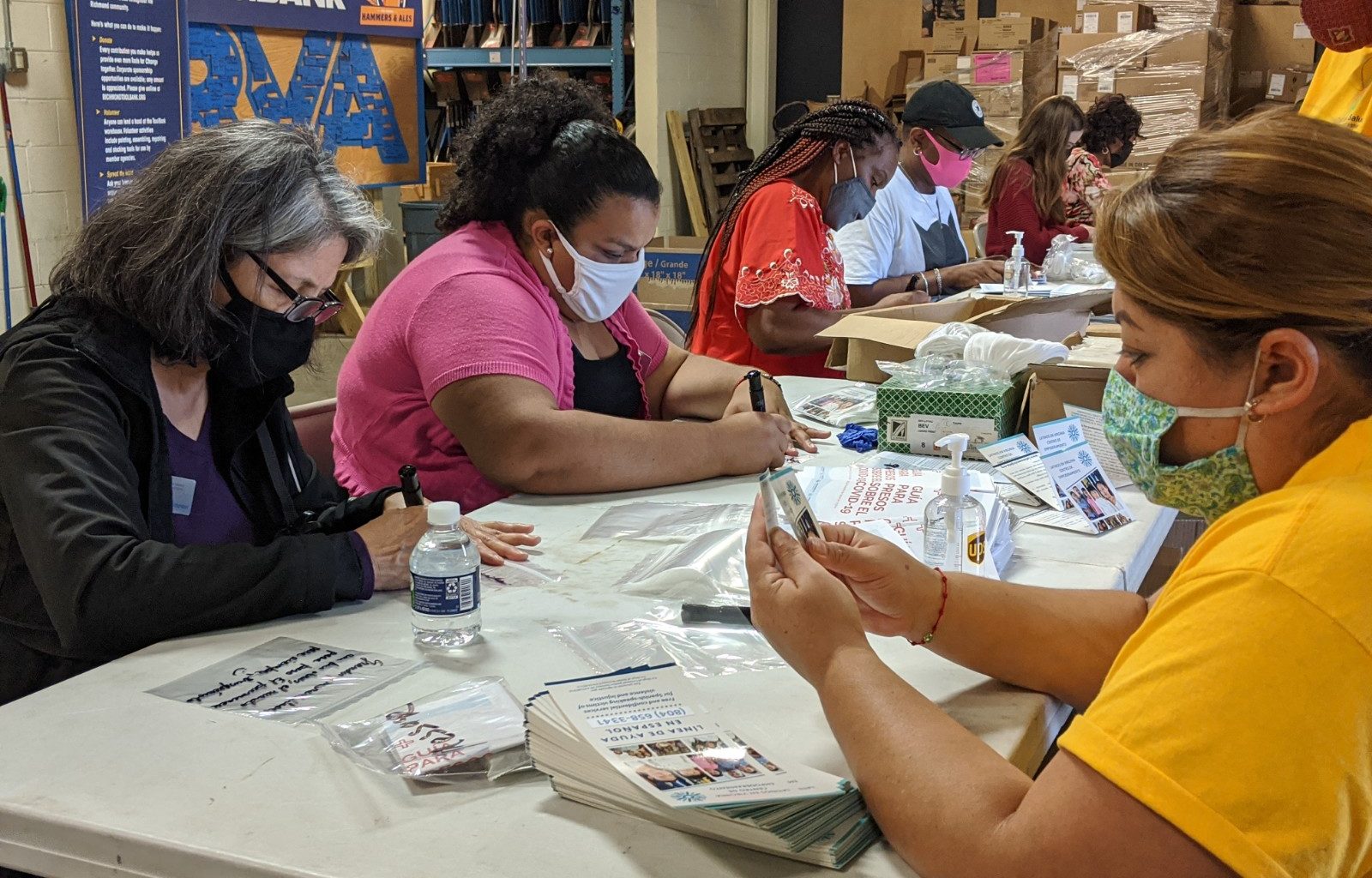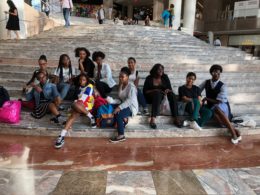In these last few months, as our nation and our commonwealth have experienced one crisis after another, you start to realize that we all respond to crises differently. And even as a collective group of people who are going through a shared event, our experiences are not the same.
For some cultural groups, a crisis or a trauma may unfold in an entirely different way because of language barriers, legalities and overall access to support resources. This is where Latinos in Virginia Empowerment Center comes in.
Also known as the LIVE Center, this organization is a nonprofit service agency that serves Spanish-speaking victims of violence, injustice and trauma in Virginia. It is the only agency in the commonwealth that can guarantee that services are delivered by bilingual and bicultural advocates.
Filling a void in the community
LIVE Center’s roots were established in 2008, when it was a grassroots organization helping Latinos better adapt to the broader community. For years, volunteers in the organization would work with Latino families, serving as translators and interpreters to help families access the most basic services needed for survival.
According to its website, as the organization began serving more families, they discovered a large portion of the people it served, 94%, were in distress because of a crime committed against them (and almost 90% of those crimes were never reported due to fear of not receiving help because of immigration status or language barriers). After realizing this connection, the organization homed in on the mission and in 2018 it was incorporated as a 501(c)3.
Today, LIVE Center helps any Spanish-speaking victim who has experienced trauma to access the resources they need without fear of refusal of care or language challenges.
“Our mission is to help Spanish-speaking victims in Virginia be happy, healthy and self-sufficient,” said Gabriela Telepman, support services coordinator at LIVE Center. “Any victim who has experienced trauma, often sexual or domestic, human trafficking, abuse, harassment, neglect, hate crimes – our advocates are equipped to serve them.”
LIVE Center just launched a 24/7 hotline to help victims any time of day, in addition to its regular services – like triaging Spanish-speakers to the appropriate contacts at various agencies, connecting them to support groups and providing counseling, case management and accompaniment services.
But for an organization that relies on personal connection, interaction and support, what happens when a global pandemic hits?
COVID-19 pandemic
When Virginia’s shutdowns first were in place in March 2020, the phones were ringing more at LIVE Center – not because of victims facing violence, but Latinos struggling with basic needs.
“The Latino population was disproportionately affected by COVID-19,” said Telepman. “We created a financial assistance program; we partnered with Diversity Richmond on a food drive to feed Hispanic Families; and our current victims and survivors support groups moved to Zoom.”
And like many other nonprofits in our area, development efforts also took a hit.
“We had a lot of plans this year [2020], to do events and have fundraisers – we couldn’t do it. We’ve been relying on a lot of the individuals who have donated to us,” said LIVE Center’s CEO, Elvira De La Cruz.
De La Cruz noted that some of the grants the organization had access to were reimbursable, making it a challenge to raise enough in other dollars to support the center’s mission.

Fostering a cultural connection
One of the largest differentiators of LIVE Center’s advocates is that they are bilingual and bicultural. The advocates who help run the center’s services, like its crisis hotline, understand not only the actual words a person is saying, but can draw from actual cultural experiences to help an individual navigate unfamiliar bureaucracies.
“Our programs have been designed from Latinos saying, ‘This is what I need,’ ‘When I went through that, this was helpful,’” said De La Cruz. “This isn’t a project for what we think Latinos need. We have different levels of culturalization. Gabriela is more culturally aligned to the American community, while I came here when I was 28, and I’ve lived here and navigated the system.”
A shared experience and a shared understanding are paramount to trust building, and when the center’s volunteers and advocates are tapped by other community partners to help facilitate an event that is geared towards Spanish-speakers, conversations unfold, invisible barriers are shed and true community building takes place.
“Once you start talking to people, I’m impressed at how much they open up right away if you just share information,” said Mónica Jiménez Sablich, outreach and volunteer coordinator at LIVE Center. “People can tell that we’ve experienced the process they’ve gone through. We’ve navigated the system; we’ve assimilated.”
De La Cruz and her team have thrown out the book when it comes to standard curriculum and talking to victims or survivors, because the regular system is not geared towards Latinos.
“When you implement things that are culturally specific, they open up in the first or second session, and you’re working on the healing process. They’re more comfortable,” said De La Cruz. “I haven’t found any evidence-based curriculum that fits that, but what we’re doing is making in impact in our community.”
The cultural component of LIVE Center is the lynchpin to its operations – right down to its communications. The organization doesn’t go to a Latino festival, just because of the subject matter. It goes to the Latino grocery store around the corner because that’s where the community congregates. It hosts a knitting circle because that’s a culturally appropriate activity which encourages conversations during victim and survivor support groups.
“That makes us special. We can really provide an effective outreach because we know. We are part of that community,” said De La Cruz.
To learn more about The Latinos in Virginia Empowerment Center, visit its website, Facebook or Instagram pages.










